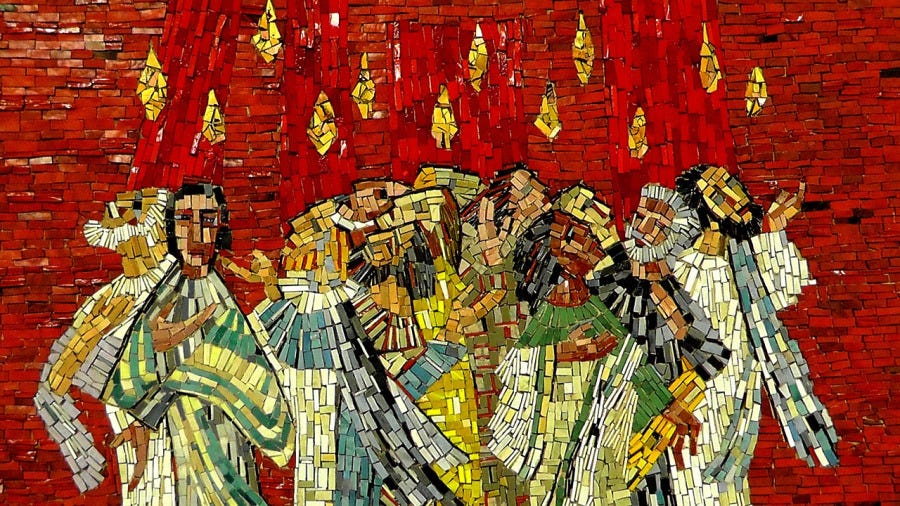Pentecost was that extraordinary event in redemptive history which launched the ordinary mission and ministry of the Church. It provides both the foundation and fuel for all of the subsequent activities of the Kingdom of God on earth. Pentecost was a participatory event—like the incarnation, cross, resurrection, and ascension—in which the One, Holy, Apostolic, and Catholic Church lives, moves, and has her being. It was a once-and-for-all occurrence which transforms every successive moment from that morning in Jerusalem to the final advent of the New Jerusalem. That meeting in the Upper Room marked out the Church’s identity, authority, and destiny. In this sense, all who name the name of Christ are at once “Pentecostal and Catholic.”
In a very real sense, Pentecost is ultimately a political event. The theopolitical implications of Pentecost are most clearly seen with reference to the Munus Triplex. Such an understanding safeguards Pentecost from the temptations of bare abstraction, crass individualism, frigid formalism, and hyper fanaticism. Undergirding my argument is the insistence that Augustine was correct in his concept of Totus Christus. That is, that which is true of Christ is in some sense true of the Church; that which pertains to the Head in some sense also pertains to the Body which is both mystically and organically joined to the person of Christ. In short, the Church is in a real sense a continuation of the incarnation—the Body of Christ on earth.



